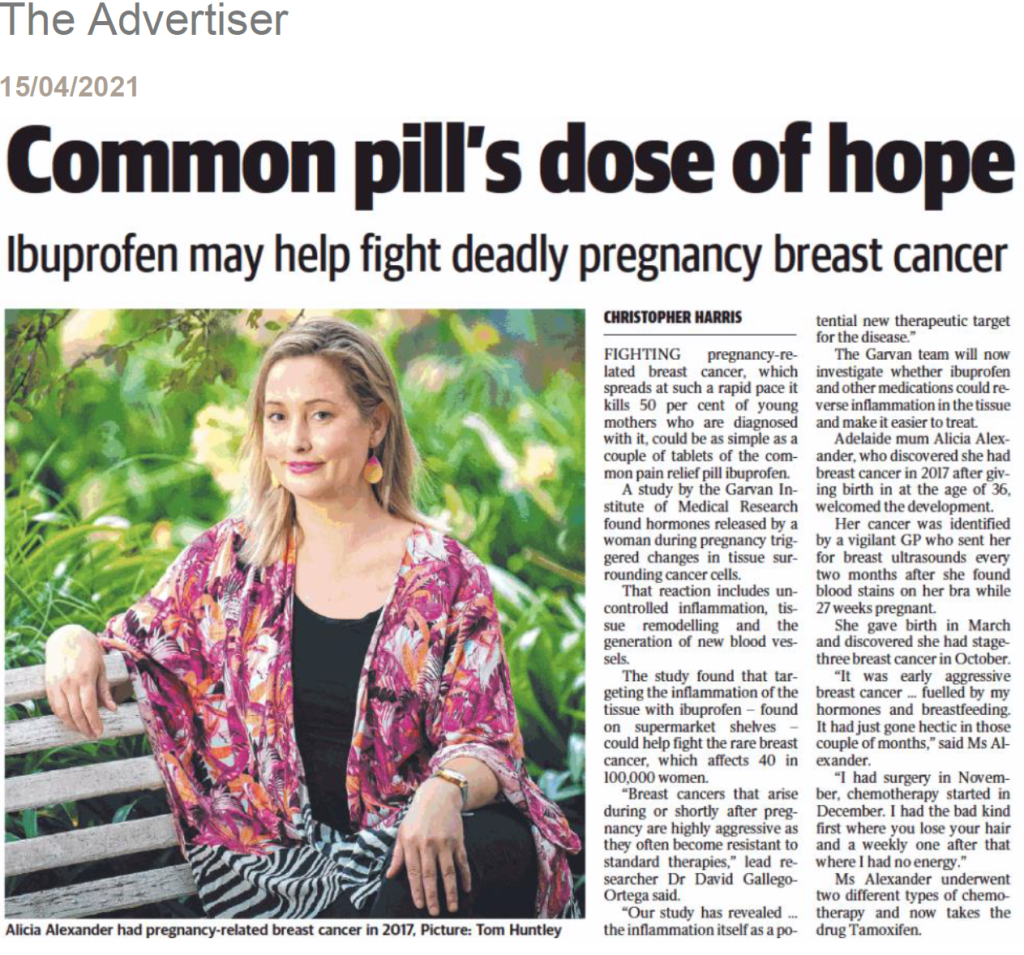Updated Advice for the Care ofPregnant Women

Dear Obstetric Shared Care GPs,
Welcome back to another GP Obstetric Shared Care update. Autumn is drawing to a close, and we think that we can all feel the cold chill of winter descending upon us! But don’t worry GP Partners and the GP Obstetric Shared Care Program has got you covered. It’s time to snuggle down with some updates!
Omega-3 Testing
In partnership with the South Australian Health and Medical Research Institute (SAHMRI), SA Pathology now offers omega-3 status testing for all women with singleton pregnancies as part of the established SAMSAS program.
The collaboration aims to reduce the incidence of premature births, and follows the release of the latest National Health and Medical Research Council and Department of Health National Pregnancy Care guidelines.
How requesting providers can order the Omega-3 status test:
- Discuss the omega-3 status test and refer your women to the information for families pamphlet
- Tick the omega-3 status test on the updated SAMSAS request form
- The omega-3 status test results will be reported to the requesting provider as a standalone report and will also be available on OASIS.
Links below for further information and resources:
SAHMRI WEBSITE – Omega-3 Status Testing For Prematurity Risk – CLICK HERE
SA PATHOLOGY – From The Clinical Service Director – CLICK HERE
SA PATHOLOGY – Request Form – CLICK HERE
OMEGA-3 Practitioner Brochure – CLICK HERE
OMEGA-3 Consumer Brochure – CLICK HERE
Reducing the Risk of Early Preterm Birth: Omega-3 Status Test Screening and Targeted Advice – CLICK HERE
Media Release – Pre-natal screening program launched in Adelaide
A world-first pre-natal screening program is being launched in Adelaide.
Pregnant women will now receive free omega-3 checks in a bid to prevent premature births – CLICK HERE
Cytomegalovirus Prevention During Pregnancy
A pregnant woman can pass CMV to her unborn baby. The virus in the woman’s blood can cross through the placenta and infect the baby. This can happen when a pregnant woman is infected with CMV prior or during pregnancy.
Although the universal routine serological screening for CMV in pregnancy is not recommended, a pregnant woman should be tested for CMV infection if they have a history suggestive of CMV illness, exposure to known a known CMV infected individual or blood product, are immunocompromised or have abnormalities on routine antenatal ultrasound suggestive of fetal congenital CMV infection.
Further to this the pregnant woman should be advised that simple infection control precautions will assist in preventing CMV. These include:
- Good handwashing after handling articles contaminated with saliva, urine, secretions – particularly after changing nappies
- Not sharing drinks, food, cups, water, toothbrushes and utensils with young children (< 3 years of age) during pregnancy
- Avoiding contact with the saliva of young children (<3 years of age)
- Avoiding saliva when kissing a child (<3 years of age)
- Not sharing a dummy/soother with a child
- Regular cleaning of toys and counter tops and other surfaces with simple detergent.
Additional management guidelines can be found in the SA PPG – Cytomegalovirus found SA Health internet www.sahealth.sa.gov.au/perinatal and on the web-based App named Practice Guidelines available at https://extapps.health.sa.gov.au/PracticeGuidelines.
An addition will be made in the SA GP Obstetric Shared Care Protocols in May 2021.
An A3 CMV information poster and patient information brochure can be obtained from the SA Health website
https://www.sahealth.sa.gov.au (search Cytomegalovirus)
Syphilis is Making a Comeback
A steady rise in cases has put screening for what had become a rare STI back on the agenda.
Essential information:
- Notifications of infectious syphilis among non-Indigenous and Aboriginal and Torres Strait Islander women of reproductive age have substantially increased, particularly in major cities ofAustralia, posing an increased risk of congenital syphilis and adverse pregnancy outcomes.
- Specific actions for clinicians include:
- Repeat testing in pregnant women at high risk of infection or reinfection
- Consider infectious syphilis as a possibility when conducting sexually transmissible infection screening
- Test for infectious syphilis in any sexually active young person where they, or their partner, resides in an area of high prevalence
Useful Links:
Increasing notifications of INFECTIOUS SYPHILIS IN WOMEN OF REPRODUCTIVE AGE – CLICK HERE
Syphilis is Making a Comeback: What GPs Need to Know – CLICK HERE
Seasonal Influenza Vaccination 2021
- Influenza vaccine is recommended in every pregnancy and at any stage of pregnancy.
- Influenza vaccine can safely be given at the same time as pertussis vaccine.
- Pregnant women who received an influenza vaccine in 2020 should receive a 2021 influenza vaccine if it becomes available before the end of pregnancy.
- Women who receive influenza vaccine before becoming pregnant should be revaccinated during pregnancy to protect the unborn infant.
Fact Sheet: CLICK HERE
The Use of Biomarkers in the Prediction,
Prevention and Diagnosis of Preeclampsia
Stillbirth Prevention Messages in the Spotlight
Over the coming weeks, the Still Six Lives public awareness campaign will focus on three stillbirth prevention messages based on elements of the Safer Baby Bundle – smoking cessation, monitoring fetal movements, and maternal side sleeping. You may see messages related to these topics appear on digital and television advertising, social media, and other channels, or find that more pregnant women have questions about these stillbirth prevention messages.
VIDEO MESSAGE – CLICK HERE

Mackenzie’s Mission Reproductive Genetic Carrier Screening
Mackenzie’s Mission is a federally funded research study aiming to provide reproductive genetic carrier screening for around 750 serious inherited genetic conditions to 10,000 couples across Australia. The screening will give prospective parents information about their likelihood of having a child with a severe genetic condition that could have a significant impact on lifespan and/or quality of life, and provide information about reproductive options and support where needed. The study also aims to investigate the best way to deliver a national reproductive genetic carrier screening program that is accessible to all couples in Australia.
Eligible couples may be invited to take part in the study via selected health care practitioners from a number of geographic regions and specialist areas across the state, to promote a broad participant enrolment base.
We are excited to announce that the study is now underway in South Australia. The study accepts enrolment of couples who are planning a pregnancy or up to 8+6 weeks pregnant. Results are returned within approximately 4 weeks.
Mackenzie’s Mission has been designed to minimise the impact on workload for recruiting healthcare practitioners. The role of a recruiting GP is to identify potential study participants, introduce the concept of reproductive genetic carrier screening and invite couples to participate in the study. Interested couples then undertake pre-test counselling (including education about reproductive carrier screening and the research study), and complete consent forms via an online portal in their own time. Couples requiring assistance to enrol can be directed to one of the study genetic counsellors. If couples choose to proceed with testing they receive sample kits in the post and everything is provided for them to collect their cheek swab samples and post back when they are ready.
Result delivery is performed through the online portal or by telephone from a genetic counsellor. Couples who require genetic counselling are referred directly to the Paediatric and Reproductive Genetics Unit at the Women’s and Children’s Hospital in North Adelaide. The referring GP receives a copy of the results for their records.
The study already has a number of recruiting health care practitioners on board, but is looking to involve more recruiters, particularly those working in regional and remote Australia. The study does have specific geographic and quota recruitment targets so health care practitioners may be approached or selected according to need.
If you are interested in potentially becoming involved in Mackenzie’s Mission, or finding out if you are in one of the recruitment target areas, please click to access the EOI form or email the South Australian study genetic counsellor at Health.WCHMackenziesMission@sa.gov.au.
Further information is also available via the study website at https://www.mackenziesmission.org.au/
McKenzie’s Mission Information Sheet | CLICK HERE
Expression of Interest | CLICK HERE
Information from the Lyell McEwin/Modbury Hospital
Midwife Coordinator: Siobhan Lucas
The NALHN GP Shared Care Midwife provides booking visits at 2 children’s centres (see clinics below.)
The newly built Antenatal Clinic at Modbury hospital is now in use and looks fabulous.
The GP Shared Care Midwife clinics are held on Tuesday and Thursdays
Monday: Parafield Gardens Children’s Centre, 9 Casuarina Drive, Parafield Gardens 5107
Tuesday : Modbury Hospital. (Booking visits are now in the new antenatal clinic as per the new development.)
Wednesday: Keithcot Farm Children’s Centre, 5 Keithcot Farm, Wynn Vale 5127
Thursday: Modbury Hospital
Friday: GP plus, 16 Playford Boulevard, Elizabeth SA 5112
Please provide a copy of any pathology or ultrasound reports to the woman for her to bring with her for her booking visit and complete the SAPR as much as possible.
Useful Links:
Parafield Gardens Children’s Centre – CLICK HERE
Keithcot Farm Children’s Centre – CLICK HERE
If you have any questions or require additional information, please do not hesitate to contact the GP Obstetric Shared Care Program Manager – Leanne at Leanne.March@gpex.com.au